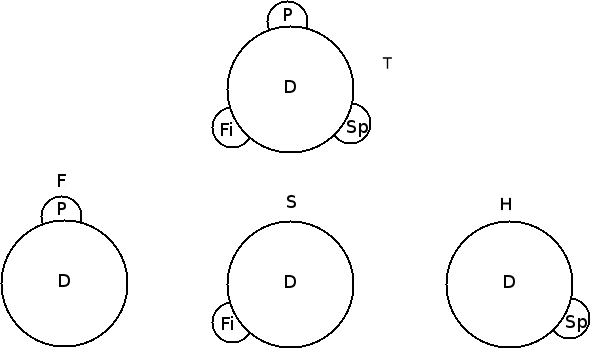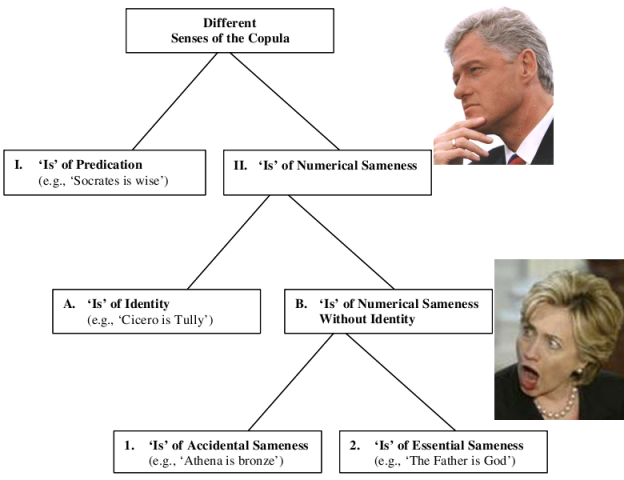podcast 168 – The Death of Unitarian Congregationalism
How and why did American Unitarian Congregationalism die?
How and why did American Unitarian Congregationalism die?
What is sometimes called the “Nicene Creed” and recited in churches is actually from this later council.
“Jesus died for our sins. Jesus provided atonement, to reconcile God and humans. Jesus paid a debt we could never pay ourselves. Jesus was willingly a sacrifice for our sins.” How should a thinking Christian understand these claims? In this episode I discuss atonement with Dr. Joshua Thurow.
Because you’re too busy to read the book, here is Dr. John M.G. Barclay review of Dr. N.T. Wright’s enormous Paul and the Faithfulness of God (kindle) in the Scottish Journal of Theology. (H/T Dr. Denny Burke.) Below are some choice bits (emphases added). You’ll have to read the whole thing to learn why there’s a Russian doll here. …the narrative of the Messiah Jesus, who takes on… Read More »Barclay reviews Paul and the Faithfulness of God
An interview by Dustin of The DustinMartyr Blog – it’s McInteresting! …the early Christian apologists, such as Justin Martyr, were not arguing about monotheism with their Jewish contemporaries. They were arguing over whether Jesus was the Messiah, and whether certain things can be said about this man who was crucified, and things like that. But we don’t find monotheism as the topic. For me, the… Read More »James McGrath on the Gospel of John and Christology
In his debate with Muslim apologist Shadid Lewis does Reformed Christian apologist Anthony Rogers establish the consistency of the Trinity and monotheism? That is, does he prove that the Trinity doctrine is not a form of polytheism? Is this episode, we examine his arguments, and discuss the Qur’an, abrogation, and whether it always distinguishes Christians from polytheists Rogers’s argument from Genesis 18-19 that Moses taught… Read More »podcast 20 – review of the Lewis-Rogers debate – part 1
When discussing Revelation 4-5 earlier in this series, I looked backwards and forwards through the book, to get a comprehensive view of this author’s theology and christology. But I overlooked something, namely this interesting little tidbit, in another throne room scene, in an interlude between some smiting. And I saw what appeared to be a sea of glass mingled with fire—and also those who had conquered the beast… Read More »Worship and Revelation 4-5 – Part 9 – Song of the Lamb
In a well-argued recent guest post and follow up comment, Greg Spendlove argued that for all we know, there could be a property (feature) which is also a person / self / personal being. As I explain in my comments there, I’m not convinced – I think we’re on firm ground to deny the alleged possibility, but I loved his example of Hooloovoo – author… Read More »Linkage: Disproving the existence of Hooloovoo?
This is one for the history buffs. Check out this piece from my favorite magazine: Hitler’s Forgotten Library. Skip to the end (last 9-10 paragraphs) for the Trinity stuff – which is (I think, ultimately Hegel-inspired) absolute idealist / monist riffing on the Trinity. Can’t muster much interest in that genre myself, since I think monism is obviously false. But I note that some theologians… Read More »Hitler a consumer of trinitarian speculations
Father, Son, Holy Spirit? A professor friend emailed me recently: I’ve lately been reading a book (at a student’s request) …a piece of bad Christian fiction called “The Shack” by William P. Young. … it might interest you in light of your trinitarian research. The persons of the Trinity make an appearance in the story: God the Father as a large black woman, God the… Read More »Another “image” of the Trinity, courtesy of The Shack (Dale)

Here’s a second application for my Latin Trinity chart (see the first post for what the letters designate). Let’s say that a state of affairs is a thing/substance having a property at a time or timelessly.
The “persons” here are just modes of D, that is, states of affairs involving D. So the Son just is D having Fi. And the Father just is D having P. And the Holy Spirit just is D having Sp. Regarding each of F, S, and H, each of them “just is” D – in the sense that in each of them, there is one and the same D.Read More »The Latin Trinity Chart 2 – a version of FSH modalism
If the earliest Christians’ answer (re: how one can be a monotheist and yet worship both the one God and Jesus) was a good answer then, why isn’t it a good answer now?
Last time I sketched out the broad, old, deep case for the Christian God being a being. This time, I want to explain where and why I get off the Thomist metaphysical bus before it reaches its destination. The Thomist project looks something like this. (I know this is oversimplified; I don’t think it matters for the subjects before us though. Correct me in the… Read More »why I am not a Thomist 2 – the possibility of a non-simple Source
At his self-titled blog Edward Feser, the Catholic philosopher & popular author mounts a negative mysterian defense of the Trinity. It’s worth a read. In my view, most of it is perfectly reasonable, but it goes wrong where he claims that the teaching of Christ as recording in the New Testament logically implies the creedal formulas about the Trinity. The defense of mystery appeals by… Read More »Feser’s Negative Mysterian Defense of the Trinity
In the last two posts, I explained what I mean by ‘pre-existing ingredients’. In the first of those two posts, I said that an ‘ingredient’ in a product is something that is (i) in the product, and (ii) not identical to another ingredient or to the whole product. In the second of those two posts, I explained that an ingredient is ‘pre-existing’ if it’s not… Read More »Arius and Athanasius, part 4 — A definition of creation (JT)
Congrats to trinities contributor Scott Williams on his new blog, aptly named Henry of Ghent, aka “The Solemn Doctor”. This is real scholarly stuff here, people – original translations and all. Check it out, and send the link to all your friends working in medieval theology and philosophy! Yet more linkage: trinities posts on Henry. And a fun time-waster.
Is the Son God? In the immortal words of Bill Clinton, “It depends on what the meaning of the word ‘is’ is.” Brower and Rea suggest the following classification of meanings of “is” (in logic, “is” is called “the copula” – that which connects the subject and what’s being said of that subject).

Um, no the Clintons aren’t in the original chart in their paper (71).
And yes, Bill is intrigued by the word “copula”. Read More »Constitution Trinitarianism Part 3: The Meaning of “Is”
Some responses and a debate challenge.
Not all engagement is good engagement.
“For all its complexity, the biblical doctrine of the Trinity can be stated in seven simple propositions.”